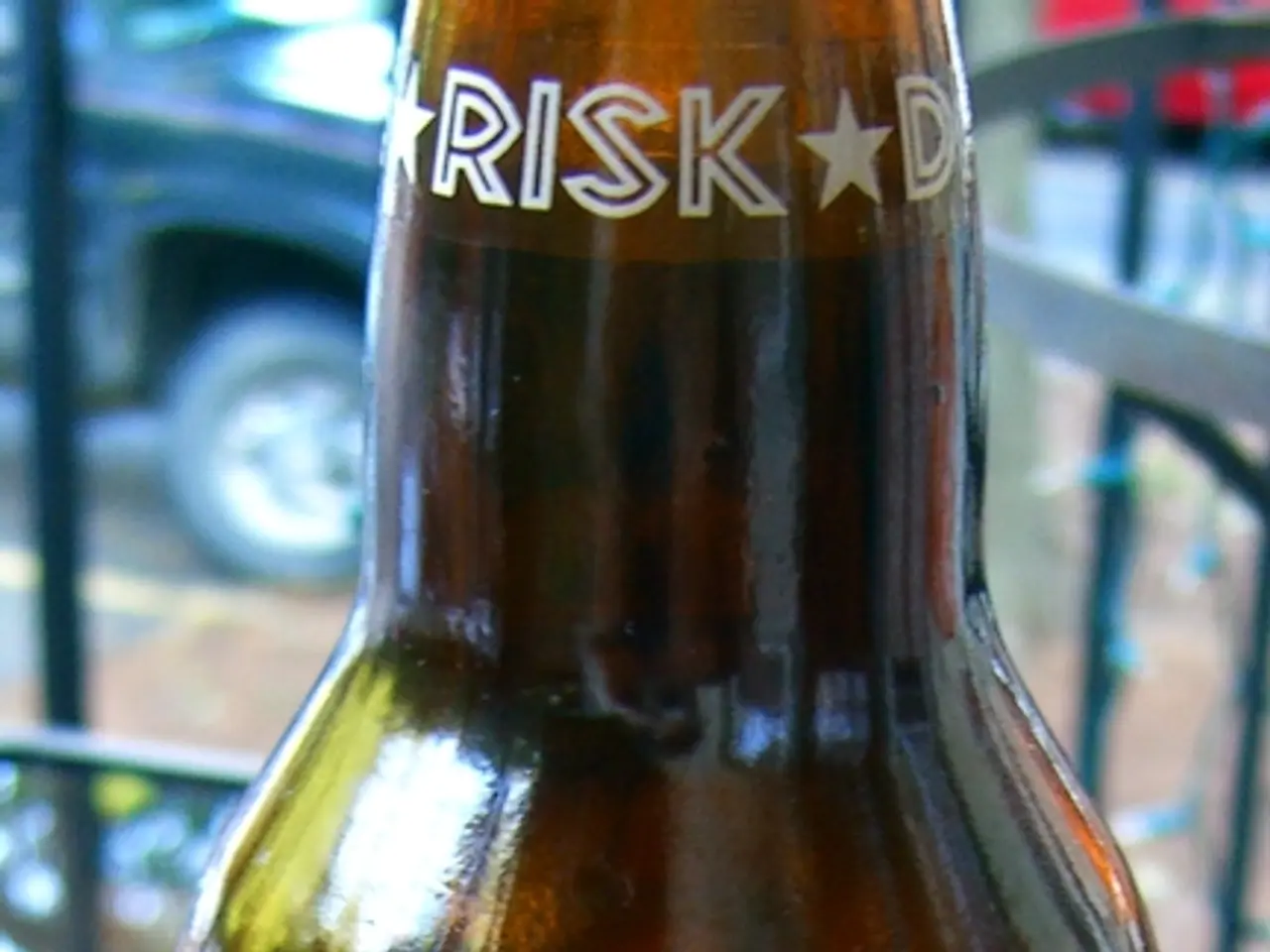Alcohol's Impact on Skin: Potential Contribution to Acne Breakouts
In a series of studies, researchers have found that while alcohol does not directly cause acne, its consumption can indirectly contribute to the worsening or prolonged duration of acne symptoms and scars in susceptible individuals.
One of the key mechanisms by which alcohol may exacerbate acne is inflammation. Alcohol triggers systemic inflammation in the body, and since inflammation is a core component of acne development and severity, this can lead to the exacerbation of acne lesions.
Furthermore, alcohol can impair the body's ability to heal and regenerate skin cells, slowing recovery from acne lesions and increasing the risk of scarring. Additionally, alcohol may suppress immune function, reducing the skin's ability to combat the bacteria and infection often associated with acne.
Poor sleep, another indirect effect of alcohol consumption, also impacts skin health. Disrupted sleep patterns affect hormonal balance and skin repair processes, contributing to acne development.
Alcohol might also increase the likelihood of other acne risk behaviours such as poor diet, dehydration, and skin irritation. Furthermore, it may be associated with increased stress responses, which stimulate hormones like cortisol that increase oil production and clog pores.
Drinking alcohol can also lead to alcoholic liver disease, which may indirectly affect acne through impaired liver function and the body's ability to remove toxins.
P. acnes, bacteria that colonize the skin and can cause or worsen inflamed acne lesions, may be more prevalent in individuals with poor liver function due to alcohol consumption.
However, it is important to note that there is no direct link between alcohol and acne. The harmful health effects of alcohol, such as inflammation, immune suppression, and disrupted sleep, are the key factors that contribute to the indirect development or worsening of acne.
In terms of skincare products, the American Academy of Dermatology (AAD) recommends avoiding cleansers that contain alcohol, as they could make acne worse by irritating and overly drying the skin. The AAD also recommends gentle cleansers for both dry and oily skin.
In conclusion, while alcohol does not cause acne directly, its impact on inflammation, immune function, skin repair, and related lifestyle factors contribute to the worsening or prolonged duration of acne symptoms and scars in susceptible individuals. It is therefore advisable to limit alcohol consumption for those struggling with acne or seeking to prevent its development.
- Alcohol consumption, through its impact on inflammation, can indirectly contribute to the exacerbation and prolonged duration of acne lesions in susceptible individuals.
- Poor diet and skin irritation, both associated with alcohol consumption, may increase the likelihood of acne development.
- Dermatology research suggests that alcohol can suppress immune function, reducing the skin's ability to combat the bacteria and infection often associated with acne.
- In the realm of health-and-wellness and skin-care, the American Academy of Dermatology (AAD) advises avoiding cleansers that contain alcohol, as they may irritate and overly dry the skin, potentially worsening acne.
- Nutrition plays a role in skin health, and a poor diet, often a consequence of alcohol consumption, may indirectly contribute to the development of acne and other medical-conditions.




